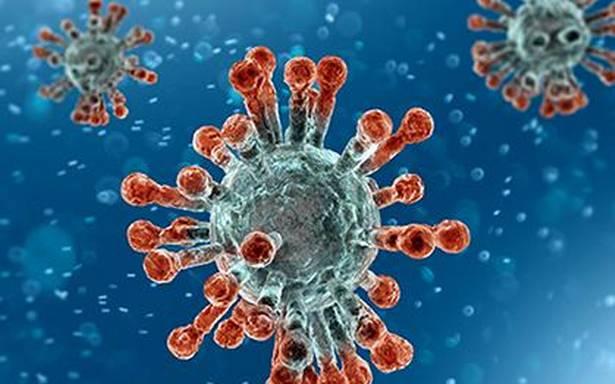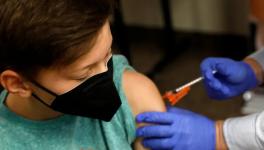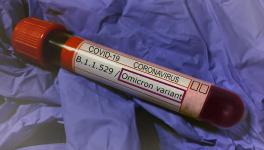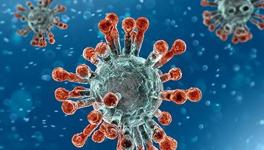Delta Variant: New Studies Shed Light on Vaccine Efficacy and High Transmissibility

Image Courtesy: The Hindu
The Delta variant of the SARS-CoV-2 virus, since its emergence in late 2020 in India, has now become the predominant variant across the world. This variant of the coronavirus that caused the COVID-19 pandemic has changes (mutations) in the genes that correspond to the spike protein, which is the protein needed for the virus to stick to human cells. The Delta variant’s rapid and wide scale spread in much of the world has been ascribed to its better sticking to human cells in comparison to the original variant of the virus.
Current estimates suggest that the Delta variant can be twice as transmissible as the original variant. Scientists and researchers across the world have been deeply engaged to decipher how Delta has been proliferating so fast. A recent study by epidemiologist Jing Lu, Guandong Provincial Centre for Disease Control and Prevention, China, and his colleagues has found two aspects linked with the Delta variant that has made it more dangerous—higher viral loads in patients infected by the Delta variants and a shorter incubation period needed. The study has been published in the pre-print server medRXiv recently.
The study tracked 62 people who were among the first ones in China to get infected by the Delta variant. The team conducting the research counted the ‘viral loads’ of the study participants. The viral load is a measure of the density of viral particles in the body. The researchers measured the viral loads in the participants on a daily basis to judge how it changes over time.
This data was then compared with 63 other people who were infected with the original variant of the SARS-CoV-2. It was found in the study that the viral load with Delta variant infection was 1,000 times higher in comparison to the variant that caused the initial waves of the pandemic in 2020.
The incubation period was also found to be less in case of the Delta variant. It was found that the virus was detectable within four days after exposure in comparison to average six days with the original strain.
The combination of the two factors results in a high amount of virus in the body in a shorter span of time. The larger amount of virus in the respiratory tract suggests that super spreading events can infect more people and they in turn begin spreading the virus earlier after they get infected.
Benjamin Cowling, an epidemiologist of the University of Hong Kong, said in a statement to Nature that “the combination of a high number of viruses and a short incubation period makes sense as an explanation for Delta’s heightened transmissibility”.
Similarly, Emma Hodcroft of University of Bern, Switzerland, also agrees about the mechanism possibly for the high transmissibility of the Delta variant.
Efficacy of Vaccines Against Delta Variant
A study published in the New England Journal of Medicine (NEJM) on July 21 assessed the efficacies of two vaccines – Pfizer-BioNTech and Oxford AstraZeneca – against the Delta variants. The study also compared the vaccines’ efficacies against Delta and the Alpha variants.
After administering one dose of any of the vaccines, the results showed that either of them has a lesser efficacy against the Delta variant in comparison to the Alpha variant. In case of the Delta variant, the efficacy of either vaccine was found to be 30.7% and that against the Alpha variant 48.7%.
After administering both doses of the Pfizer vaccine, the effectiveness was found to be 88% in people that got infected by the Delta variant. Again the same vaccine showed a 93.7% efficacy amongst people with the Alpha variant.
The Oxford AstraZeneca vaccine, after administering both doses, showed 67% effectiveness in people contacting the Delta variant. And, an effectiveness of 74.5% in the case of Alpha variant.
The study suggests that there are only modest differences regarding the effectiveness of vaccine against the Delta variant in comparison to the Alpha variant, when both the doses of are administered. However, sharp differences in vaccine effectiveness could be observed after receiving the first dose.
Get the latest reports & analysis with people's perspective on Protests, movements & deep analytical videos, discussions of the current affairs in your Telegram app. Subscribe to NewsClick's Telegram channel & get Real-Time updates on stories, as they get published on our website.
























